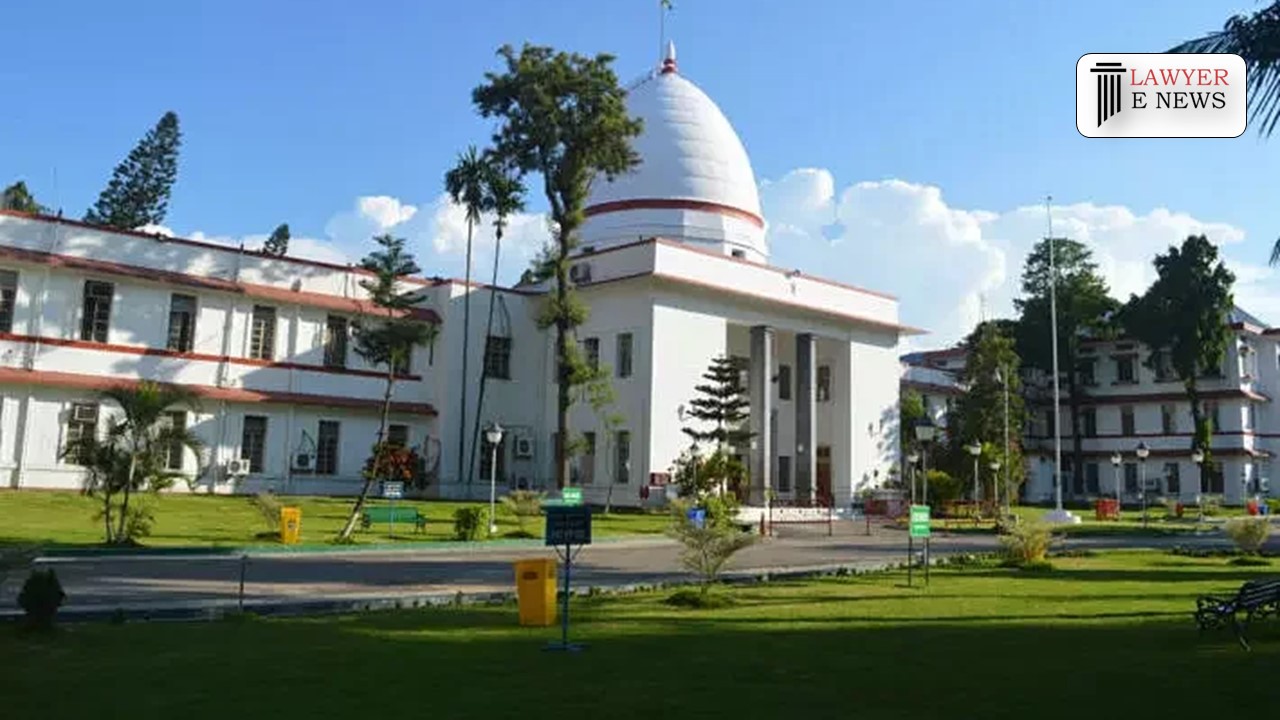-
by Admin
15 February 2026 2:36 AM



Gauhati High Court issued a significant ruling holding that the Debts Recovery Tribunal (DRT) can condone delays in applications filed under Section 17 of the SARFAESI Act by applying the provisions of the Limitation Act, 1963. The Court’s decision resolves an ongoing debate about the applicability of the Limitation Act to such proceedings and sets aside the DRT’s earlier refusal to condone a 19-day delay in the case.
The High Court emphasized that Section 24 of the Recovery of Debts and Bankruptcy Act, 1993 (RDB Act), which makes the Limitation Act applicable to tribunal proceedings, also extends to applications filed under Section 17 of the SARFAESI Act.
“Limitation Act Provisions Apply Unless Explicitly Excluded”
The Court, led by Chief Justice Vijay Bishnoi, observed that Section 17(7) of the SARFAESI Act explicitly states that applications filed under Section 17 must be disposed of “in accordance with the provisions of the RDB Act.” Section 24 of the RDB Act, in turn, incorporates the Limitation Act into its framework. Justice Bishnoi wrote:
"The Debts Recovery Tribunal is required to dispose of an application filed under Section 17 of the SARFAESI Act as per the provisions of the RDB Act, wherein by virtue of Section 24 of the RDB Act, the provisions of the Limitation Act are applicable. The legislature has not excluded the Limitation Act from such proceedings."
Rejecting Restrictive Views of Calcutta and Orissa High Courts
The High Court declined to follow the restrictive interpretation adopted by the Calcutta High Court in Akshat Commercial Pvt. Ltd. v. Kalpana Chakraborty (2010) and the Orissa High Court in BM Urban Cooperative Ltd. v. Registrar, DRT (2021), both of which held that the DRT cannot condone delays in Section 17 applications as the proceedings are “original” in nature, akin to filing a civil suit. The Gauhati High Court disagreed with this interpretation, observing that:
"While the proceedings under Section 17 are original in nature, they are not akin to filing a civil suit. Rather, they are more akin to objections raised against the secured creditor’s actions, and the Limitation Act can be invoked to condone delays in filing such objections."
The Court also noted that these decisions overlooked the broader legislative intent and the principle of legislation by incorporation.
“Principle of Legislation by Incorporation Supports Condonation”
The judgment relied on the principle of legislation by incorporation, which states that when one statute incorporates provisions of another statute, those provisions apply in their entirety unless explicitly excluded. The Court held that Section 17(7) of the SARFAESI Act incorporates the procedural framework of the RDB Act, including Section 24, which allows for the application of the Limitation Act to DRT proceedings.
Quoting the Supreme Court’s observation in Baleswar Dayal Jaiswal v. Bank of India (2016), the Court noted:
"The Appellate Tribunal under the SARFAESI Act has the power to condone delay in filing appeals under Section 18, and by extension, the DRT also has the power to condone delays in Section 17 applications."
Protecting Borrowers’ Rights
The High Court stressed that excluding the Limitation Act from Section 17 applications would deny borrowers and other aggrieved persons an opportunity to challenge the actions of secured creditors. It warned that such a restrictive interpretation would undermine the SARFAESI Act’s remedial framework:
"If an aggrieved person is prevented from availing the statutory remedy under Section 17 merely due to a procedural delay, they would be left with no alternative but to invoke the extraordinary jurisdiction of the High Court under Article 226, defeating the purpose of creating specialized tribunals."
DRT’s Dismissal Set Aside and Case Remanded
The Gauhati High Court found that the DRT erred in dismissing the petitioners’ Section 17 application without properly considering their request for condonation of the 19-day delay. It remanded the matter to the DRT, directing it to reconsider the delay application.
"The DRT can condone the delay in filing the application under Section 17 of the SARFAESI Act while applying the provisions of Sections 4 to 24 of the Limitation Act, 1963, of course, only if it is satisfied that the delay is sufficiently explained."
The Court further instructed the DRT to decide the Section 17 application on its merits if the delay is condoned.
This ruling brings clarity to an area of law that has seen conflicting views among High Courts. By aligning with the broader interpretation adopted by other High Courts, including Andhra Pradesh, Madras, and Madhya Pradesh, the Gauhati High Court’s decision underscores the SARFAESI Act’s aim to balance the rights of creditors and borrowers while maintaining the procedural safeguards of the RDB Act.
Key Takeaways from the Judgment
Applicability of Limitation Act: The provisions of the Limitation Act apply to Section 17 applications under the SARFAESI Act through Section 24 of the RDB Act, which is incorporated via Section 17(7) of the SARFAESI Act.
Remedial Nature of Section 17: The Court rejected the restrictive interpretation treating Section 17 proceedings as equivalent to civil suits, emphasizing that they are remedial and procedural in nature.
Condonation of Delay: DRTs have the power to condone delays in filing Section 17 applications if sufficient cause is shown, preserving the aggrieved party’s right to challenge creditor actions.
Protection of Borrowers: The decision protects borrowers’ rights and ensures access to remedies without procedural technicalities causing undue hardship.
Date of decision: 20/11/2024
